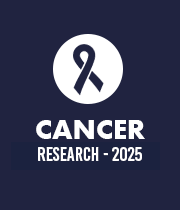Title : The interplay between viruses and cancer: Mechanisms and therapeutic implications
Abstract:
The relationship between viruses and cancer has garnered significant attention in recent decades, revealing a complex interplay that contributes to tumorigenesis. Certain viruses, known as oncoviruses, have been identified as key players in the initiation and progression of various malignancies. This abstract explores the mechanisms through which viruses influence cancer development, focusing on viral oncogenes, immune evasion strategies, and the modulation of cellular pathways.
Oncoviruses such as Human Papillomavirus (HPV), Epstein-Barr Virus (EBV), and Hepatitis B and C viruses (HBV, HCV) have been linked to specific cancers, including cervical, nasopharyngeal, and liver cancers. These viruses employ various strategies to hijack host cellular machinery, promoting uncontrolled cell proliferation and evading apoptosis. For instance, HPV expresses early viral proteins that disrupt the function of tumor suppressor proteins like p53 and Rb, leading to genomic instability.
Moreover, viral infections can alter the tumor microenvironment by modulating immune responses. Oncoviruses often induce chronic inflammation, which can further drive carcinogenesis. Understanding these interactions not only enhances our comprehension of cancer biology but also opens new avenues for therapeutic interventions.
Recent advancements in virotherapy have demonstrated the potential of using oncolytic viruses to selectively target and destroy cancer cells while sparing normal tissues. These innovative approaches are paving the way for novel cancer treatments that harness the unique properties of viruses.
In conclusion, the intricate relationship between viruses and cancer underscores the importance of continued research in this field. By elucidating the molecular mechanisms involved, we can develop more effective strategies for prevention, diagnosis, and treatment of virus-associated cancers.


